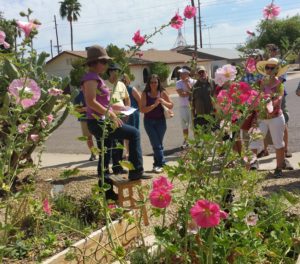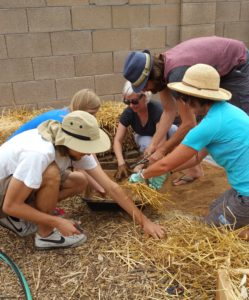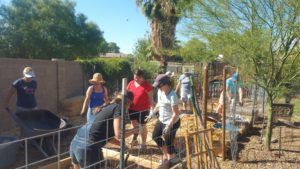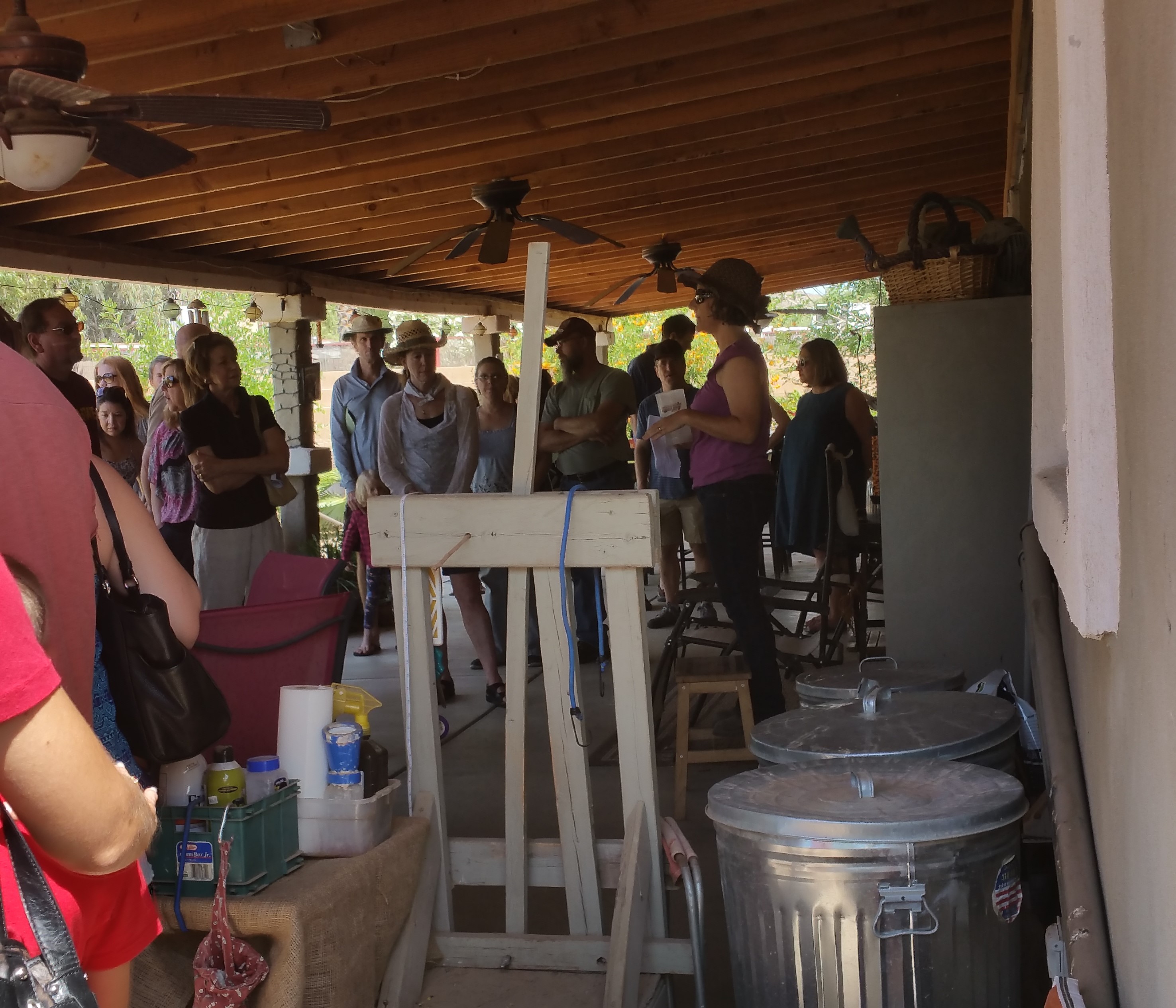
Any urban farmer knows that once the word gets out, people will want to see first-hand what you are doing to grow and raise food in the city. The Micro Farm Project welcomes visitors to the farm. We love to share what we do with the public, and host a farm tour often. But having visitors can be risky. Whether you are holding an open house, hosting classes, welcoming customers or employing volunteers, it is important to provide a safe environment and protect yourself from lawsuits, should someone claim injury.
I am not a legal expert. This article is not intended to replace professional advice on farm tours. Be certain to consult your own insurance agent and legal team for information pertaining to your personal situation. Here are a few tips, based on our experience, to get you started hosting a farm tour.
1.Walk your property before your farm tour and view it through the eyes of a visitor.

Carefully examine and repair anything potentially dangerous. Look for tripping points in a walkway and sharp edges on fencing. Close openings that may allow small children to slip into animal pens, and so forth. Mark uneven pathways or places where
someone could bump their heads with flags or reflective tape. Even if you think the danger is obvious and should be avoidable, fix it, block it or mark it.
2. Post signs that communicate expectations for your farm tour visitors.
For instance, if you have nibbly animals, post warnings stating clearly that visitors should keep their hands off of fences to avoid injury. Signs stating “Watch Your Head” or “Stay on Paths” are also helpful to keep visitors safe.
3. All visitors should sign a farm tour “Acknowledgement of Risk” and/or a “Release and Waiver of Liability and Photo Release.”
These forms should be filed and saved. Consult your insurance agent for recommendations concerning the wording of your documents.
4. Make sure that you are properly insured.
If you are running an urban farm at your home, your current homeowner’s insurance may not cover you for your farming activities. Call your local Farm Bureau or university extension offices for an agent recommendation. An agent will likely visit your farm to see your operation. Then, they will recommend the proper coverage both for the protection of your guests. There is also coverage for any damage done by guests to your property. They may helpful make safety suggestions and help you to formulate a safety plan.

5. When partnering with another organization, make sure that you are covered by their liability insurance.
For instance, if you host a school field trip or hold a class sponsored by a community organization, ascertain whether or not their insurance will cover the activity. Get your paperwork in order in advance of the event. Notify your insurance agent of events and forward paperwork to them. Your agent can make certain that you are properly covered prior to hosting any event or activity.
6. Keep a well-stocked first aid kit handy.
In the event that you need to use it, have a record of the exact nature of the injury and the first aid that was applied. Show empathy. But make no statements assuming responsibility. Make note if an ambulance was called or if the person involved in the accident was taken to the emergency room.
These tips will give you peace of mind that visitors will be safe. And you can relax during the farm tour, knowing that you are covered in the event of an unforeseen injury.


